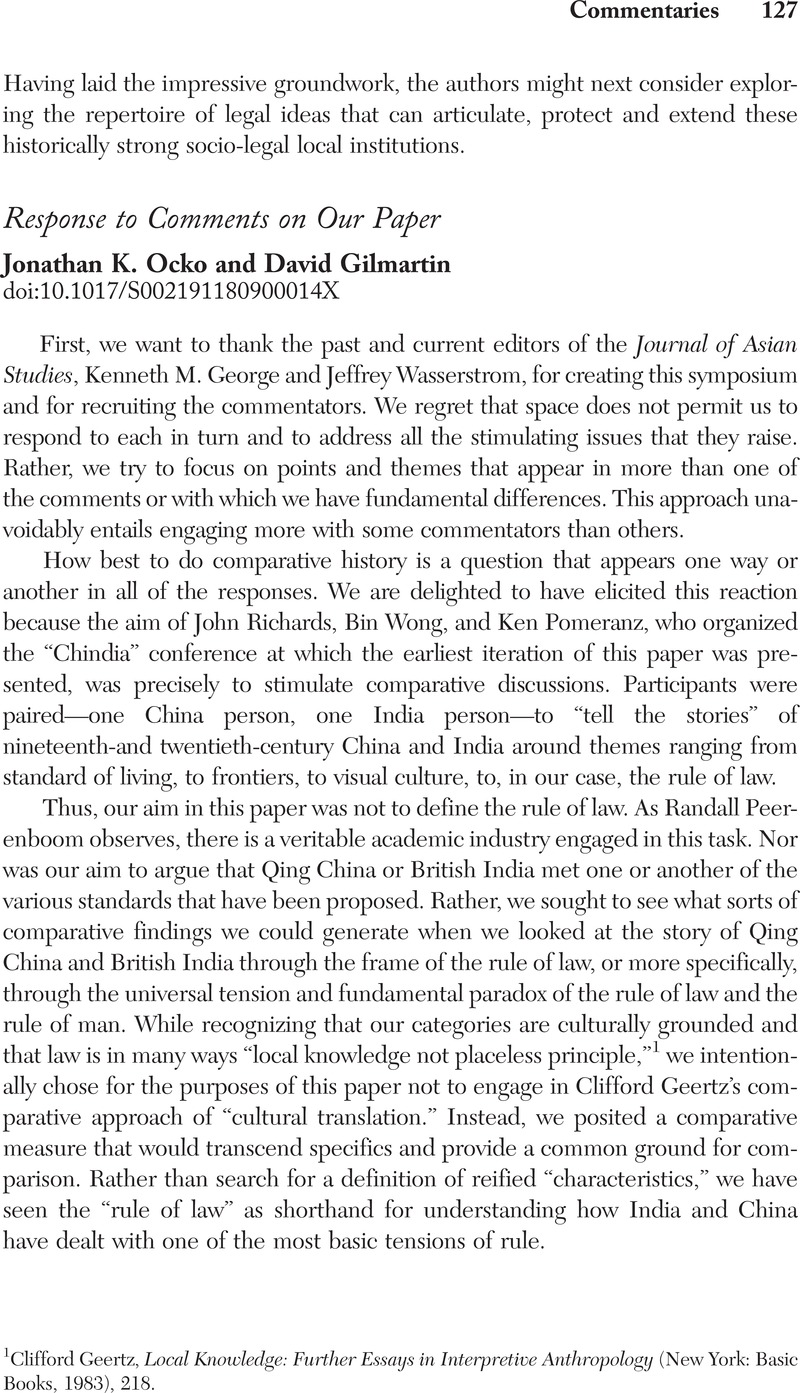Published online by Cambridge University Press: 27 January 2009

1 Geertz, Clifford, Local Knowledge: Further Essays in Interpretive Anthropology (New York: Basic Books, 1983), 218Google Scholar.
2 With respect to China, we should note here our disagreement with Prasenjit Duara's view, based on David Faure's work, that contracts played a limited role prior to the 1904 Company Law in raising and organizing capital. Zelin's, Madeleine recent work on Zigong salt merchants shows that prior to this law and modern banking, large-scale industrial investment and development occurred; see The Merchants of Zigong: Industrial Entrepreneurship in Early Modern China (New York: Columbia University Press, 2005)Google Scholar. With respect to contracts more generally, we were a bit surprised that none of the commentators responded to our tentative hypothesis that the somewhat different contract cultures China and India may have had in the period we have discussed are perhaps critical in understanding the working of the rule of law in the two regions.
3 Thompson, E. P., “The Moral Economy of the English Crowd in the 18th Century,” Past and Present 50, no. 1 (1971): 76–136CrossRefGoogle Scholar.
4 The law's immoral substance, in this context, lay primarily in the many forms of colonial security legislation that the state relied on in these years. But this structure also reflected back, though perhaps more ambiguously, on the substance of Hindu and Muslim law as enforced in the colonial courts, which were, in this context, particularized and thus to some extent divorced from transcendent morality.